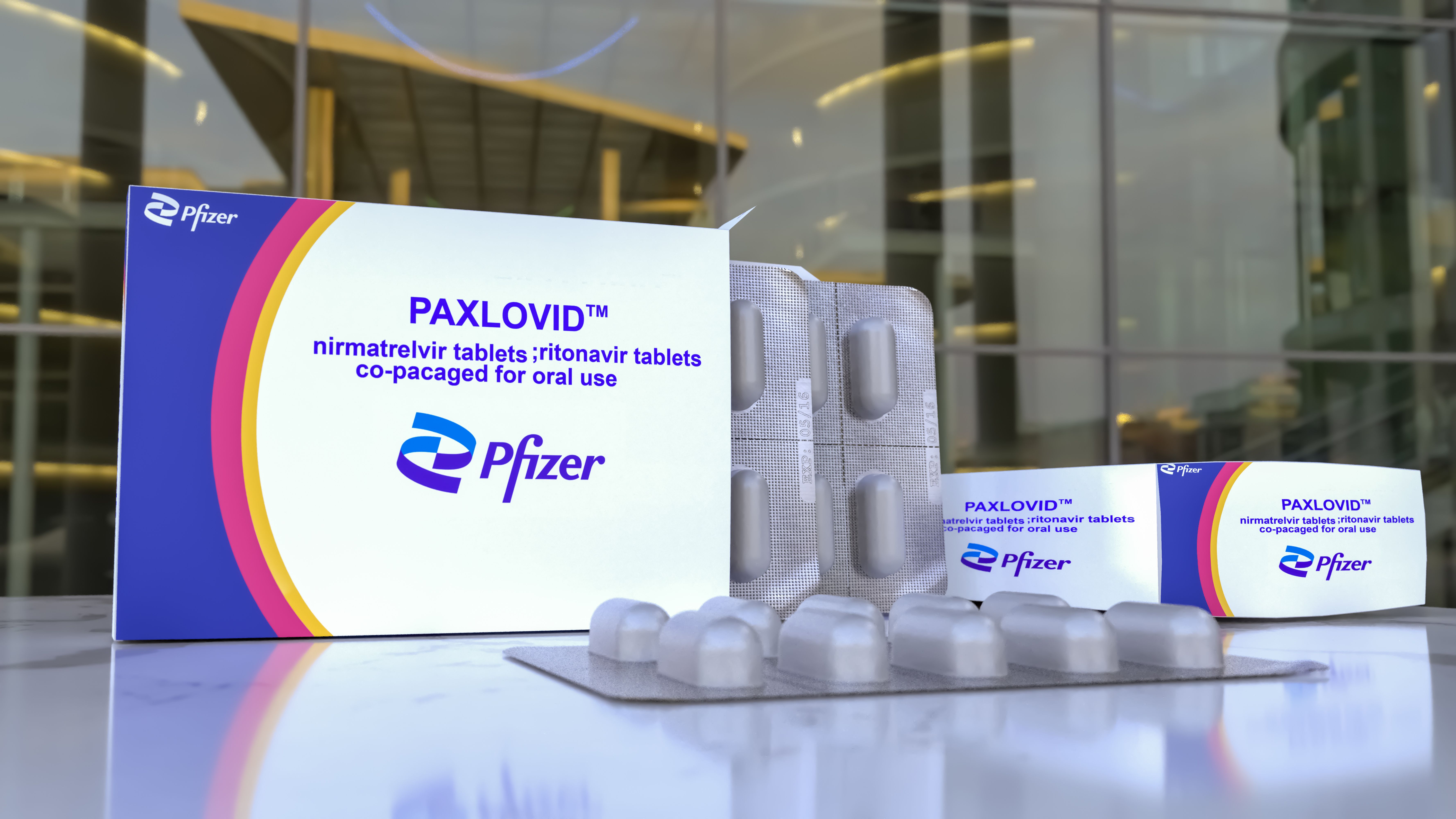
- Clinical Technology
- Adult Immunization
- Hepatology
- Pediatric Immunization
- Screening
- Psychiatry
- Allergy
- Women's Health
- Cardiology
- Pediatrics
- Dermatology
- Endocrinology
- Pain Management
- Gastroenterology
- Infectious Disease
- Obesity Medicine
- Rheumatology
- Nephrology
- Neurology
- Pulmonology
FDA Approves First Oral Antiviral Medication for COVID-19 Treatment among Adults
The FDA approved Paxlovid™ for the treatment of mild-to-moderate COVID-19 in adults who are at high risk for progression to severe disease.

The US Food and Drug Administration (FDA) approved Paxlovid™ (nirmatrelvir tablets and ritonavir tablets; Pfizer) for the treatment of mild-to-moderate COVID-19 in adults who are at high risk for progression to severe disease, including hospitalization or death, the agency announced on May 25, 2023.
Paxlovid is the first oral antiviral pill approved by the FDA for the treatment of COVID-19 in adults.
“While the pandemic has been challenging for all of us, we have made great progress mitigating the impact of COVID-19 on our lives,” said Patrizia Cavazzoni, MD, director for the FDA’s Center for Drug Evaluation and Research in the agency’s press release. “Today’s approval demonstrates that Paxlovid has met the agency’s rigorous standards for safety and effectiveness, and that it remains an important treatment option for people at high risk for progression to severe COVID-19, including those with prior immunity.”
“Today marks a monumental milestone as PAXLOVID became the first COVID-19 oral treatment to be approved by the U.S. FDA, underscoring the value it brings to patients, providers, and health systems alike,” said Albert Bourla, chairmen and CEO of Pfizer in a May 25, 2023, company press release.
Paxlovid was initially granted an emergency use authorization (EUA) in December 2021 for use in high-risk individuals aged ≥12 years. In July 2022, the FDA expanded the EUA to allow pharmacists to prescribe the drug to qualifying persons immediately after testing positive for COVID-19. More recently, in March 2023, the FDA’s Antimicrobial Drugs Advisory Committee voted 16-1 in support of the approval of Paxlovid for the treatment of mild-to-moderate COVID-19 in adults at high risk for severe disease, hospitalization, or death.
Paxlovid manufactured and packaged under the EUA and distributed by the US Department of Health and Human Services will remain available “to ensure continued access for adults, as well as treatment of eligible children ages 12-18 who are not covered by today’s approval,” stated the FDA. The agency also noted that Paxlovid is not approved or authorized for use as a pre-exposure or post-exposure prophylaxis for prevention of COVID-19.
The FDA’s decision was based on safety and efficacy data from the EPIC (Evaluation of Protease Inhibition for COVID-19) clinical development program, which included results from the phase 2/3 EPIC-HR (Evaluation of Protease Inhibition for COVID-19 in High-risk Patients) study. The EPIC-HR study enrolled unvaccinated, nonhospitalized adults aged ≥18 years with confirmed COVID-19 and at increased risk of progressing to severe disease. Results showed an 86% decrease in risk of COVID-19-related hospitalization or death from any cause through day 28 in patients who received Paxlovid within 5 days of symptom onset, compared to those who received placebo.
In addition, among patients in EPIC-HR who were antibody positive at trial enrollment, the risk of COVID-19-related hospitalization or death from any cause during 28 days of follow-up was 0.2% among the 490 participants in the Paxlovid arm compared with 1.7% of the 479 participants in the placebo group, according to the FDA.
The vote was further supported by findings from a secondary endpoint of the phase 2/3 EPIC-SR (Evaluation of Protease Inhibition for COVID-19 in Standard-risk Patients) study that enrolled vaccinated patients with at least 1 risk factor for progression to severe COVID-19. Findings showed a nonsignificant risk reduction in COVID-19-related hospitalization or death from any cause among patients who received Paxlovid.
Data from the EPIC-HR and EPIC-SR trials also provided information about COVID-19 rebound, according to the FDA. Results showed that rebound in SARS-CoV-2 shedding or COVID-19 symptoms occurred in a subset of participants and happened in both those who received Paxlovid and placebo.
“Based on the data currently available to the FDA, there is not a clear association between Paxlovid treatment and COVID-19 rebound,” stated the agency in the release.
The FDA stated that prescribers of Paxlovid should first review all current medications taken by the patient to assess for potential drug-drug interactions and “determine if other medicines that a patient may be taking require a dose adjustment, interruption and/or additional monitoring.”
The most common side effects of Paxlovid include impaired sense of taste and diarrhea, noted the FDA.
2 Commerce Drive
Cranbury, NJ 08512
All rights reserved.